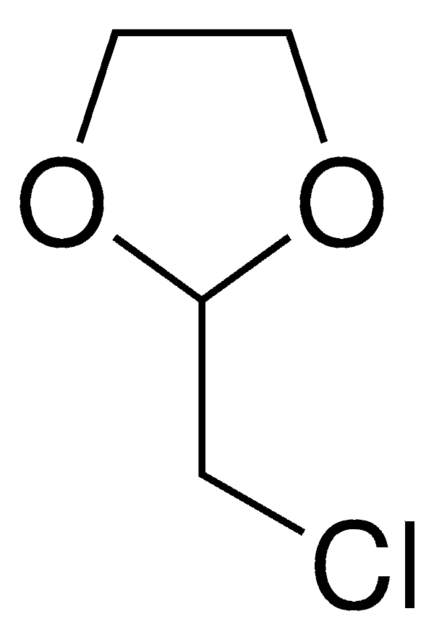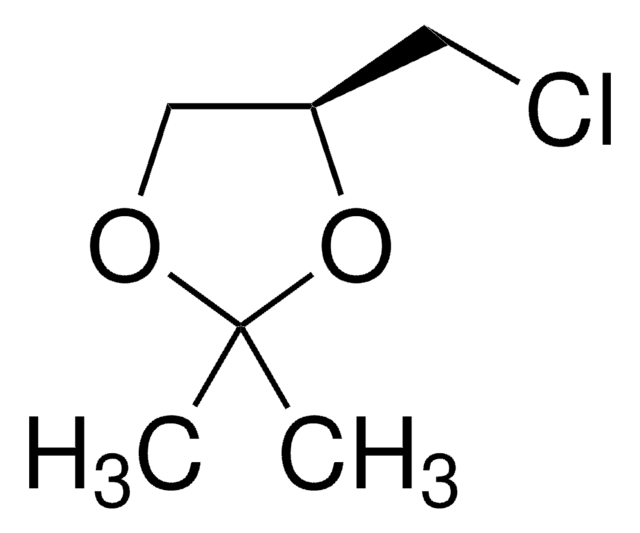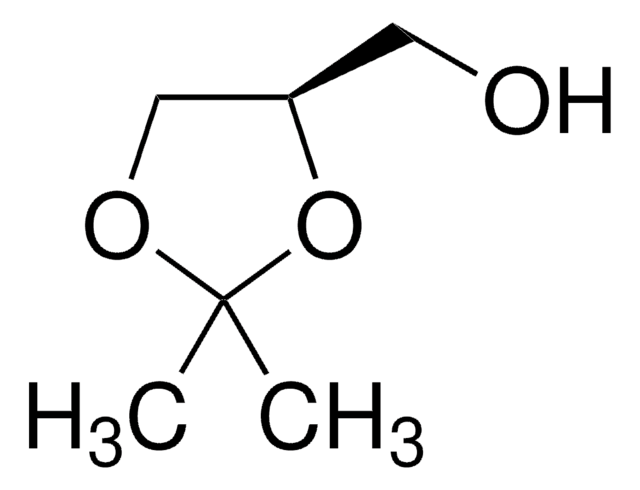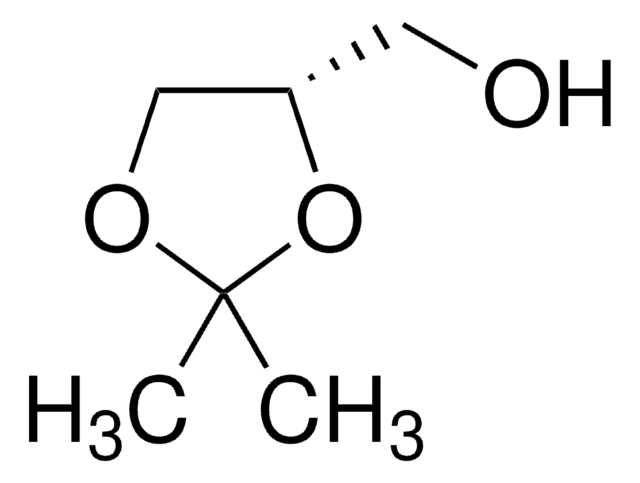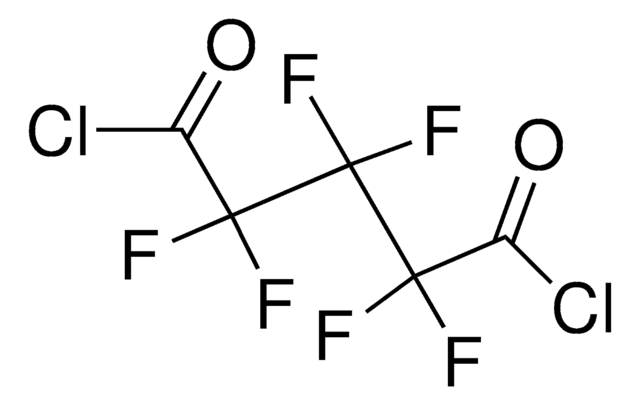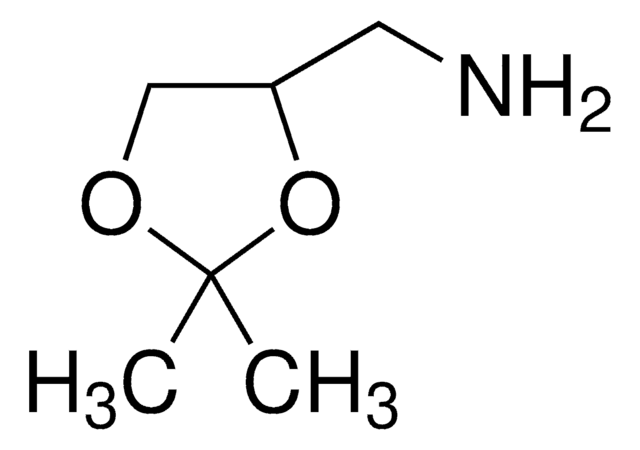All Photos(1)
About This Item
Empirical Formula (Hill Notation):
C6H11ClO2
CAS Number:
Molecular Weight:
150.60
EC Number:
MDL number:
UNSPSC Code:
12352100
PubChem Substance ID:
NACRES:
NA.22
Recommended Products
Assay
97%
refractive index
n20/D 1.434 (lit.)
bp
156-158 °C (lit.)
density
1.063 g/mL at 25 °C (lit.)
SMILES string
CC1(C)OCC(CCl)O1
InChI
1S/C6H11ClO2/c1-6(2)8-4-5(3-7)9-6/h5H,3-4H2,1-2H3
InChI key
BNPOTXLWPZOESZ-UHFFFAOYSA-N
Related Categories
General description
4-Chloromethyl-2,2-dimethyl-1,3-dioxolane is a ketal that can be synthesized by the reaction of 3-chloro-propane-1,2-diol (3-MCPD) with acetone in the presence of p-toluene sulfonic acid.
Application
4-Chloromethyl-2,2-dimethyl-1,3-dioxolane may be used in the preparation of 2,2-dimethyl-4-methylene-1,3-dioxolane via dehydrochlorination.
Signal Word
Danger
Hazard Statements
Precautionary Statements
Hazard Classifications
Acute Tox. 3 Oral - Flam. Liq. 3
Storage Class Code
3 - Flammable liquids
WGK
WGK 3
Flash Point(F)
127.9 °F - closed cup
Flash Point(C)
53.3 °C - closed cup
Personal Protective Equipment
dust mask type N95 (US), Eyeshields, Gloves
Certificates of Analysis (COA)
Search for Certificates of Analysis (COA) by entering the products Lot/Batch Number. Lot and Batch Numbers can be found on a product’s label following the words ‘Lot’ or ‘Batch’.
Already Own This Product?
Find documentation for the products that you have recently purchased in the Document Library.
On the Cationic Polymerization of 2, 2-Dimethyl-1, 3-dioxole and 2,2-Diphenyl-1,3-dioxole.
Akkapeddi MK and Reimschuessel HK.
Macromolecules, 2(5), 827-831 (1979)
Occurrence of 3-chloro-propane-1, 2-diol (3-MCPD) and related compounds in foods: a review.
Hamlet CG, et al.
Food Additives and Contaminants, 19(7), 619-631 (2002)
Our team of scientists has experience in all areas of research including Life Science, Material Science, Chemical Synthesis, Chromatography, Analytical and many others.
Contact Technical Service
